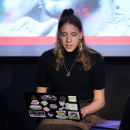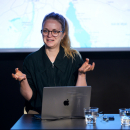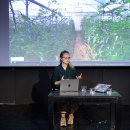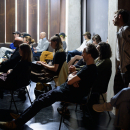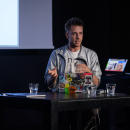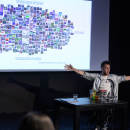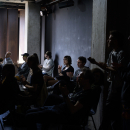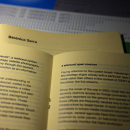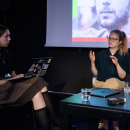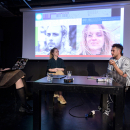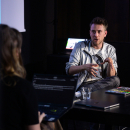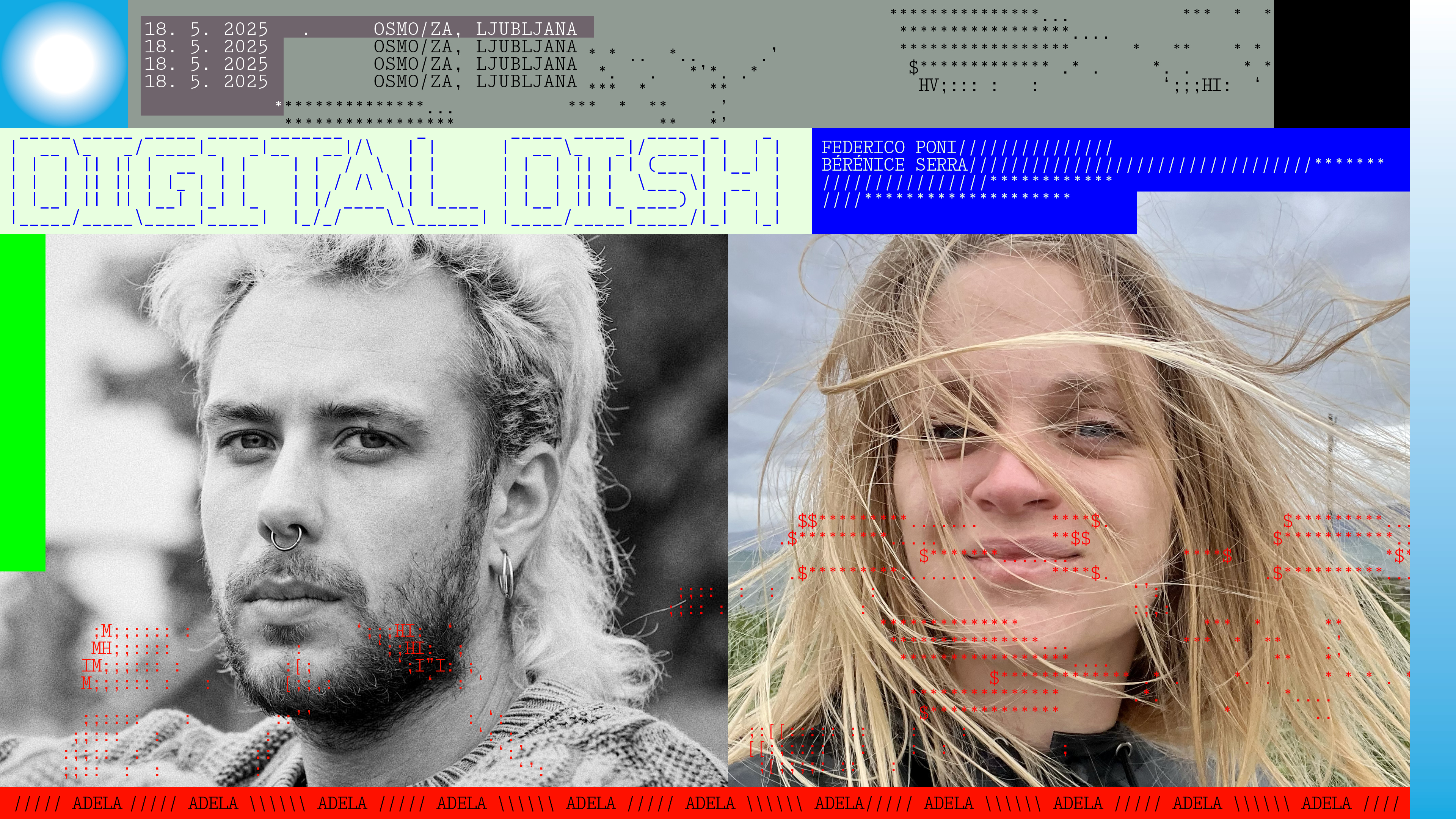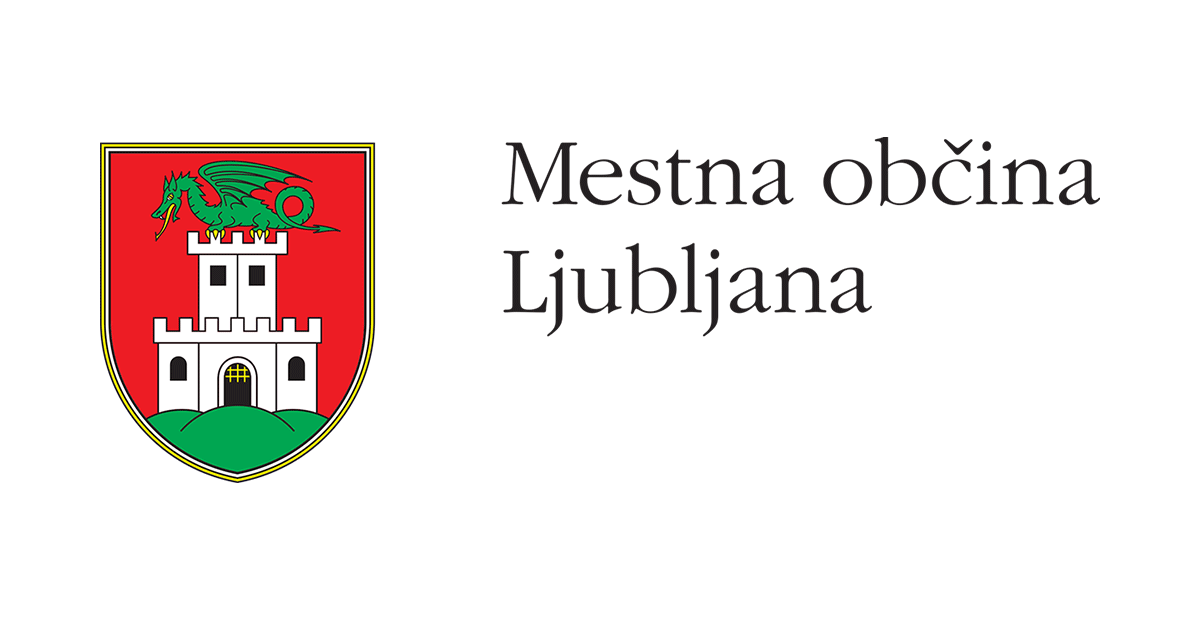Festival ADELA | Digital Dish
This year, Adela’s Digital Dish will be dedicated to community-based practices that propose a rethinking of computation, question the relationship between transparency, disposability and the opacity of data and highlight care as a form of resistance against exploitation.
Italian artist and researcher Federico Poni, a member of the Habitat community in the village of Cà de Monti, engages in “rural computing”, a speculative practice that proposes new ways of engaging with technology through ritual, conviviality and storytelling.
Artist and researcher Bérénice Serra, who will also present her work at the Parameter Fair, will use her lecture to showcase several examples of community-driven data collection and the consequences of both intentional and accidental disclosures of sensitive military information, prompting reflection on the influence of open data and the fragility of infrastructure.
The presentations will be followed by a discussion with the artists, moderated by Lea Sande.
Federico Poni
The traffic fades
The moon rises
Memory was once a cosmology of inner order, spaces in which thought became a map and a path. “Device” (dispositio) then meant arranging the interior space, creating a path in the mind, ordering a room of thought and transforming it into a sanctuary of reflection. It was an invocation, fueled by personal yet collective sensations and metaphysicalisations of the world.
The contemporary device presents itself as a threshold between reality and symbol, a communication highway and a portal for the mechanical externalisation of thoughts. In the slow disintegration of wonder, seriality emerged as the lifeblood of capitalist technique, consuming through the roots of imagination and transforming every act of contemplation into a data point in an ever-growing ledger of desire.
If we try to re-imagine “computation” (computāre) as a non-digital discipline, a collective act of reckoning and calculating, the device becomes a relationship that captures meaning and a structure of existential possibility. On the margins of the network and in the heart of rural spaces, where computation becomes communal and where memory is not accumulated in distant servers but sediments in the landscape, “Rural Computing” emerges as a tactical deviation toward a rediscovery of the gesture as a form of knowledge and a politics of slowness that contrasts the ruthless speed, extractivism and standardisation of the contemporary techno-capitalist system.
Bérénice Serra
On Silent and Silenced Open Sources
Open sources and open data have become essential tools for understanding connections between civilians and military infrastructures. Bérenicé Serra’s talk examines two projects where civilian-generated data, whether incidental or intentional, illuminates the hidden dynamics of military operations. In the first project, users of fitness GPS apps, like Strava, unwittingly uncover sensitive military locations while drawing innocent animals on the map. By paying attention to soldiers’ running routes, they reveal the outlines of military bases, previously hidden in plain sight. The second project draws on OSINT (Open Source Intelligence) practices, where the press uses digital infrastructure as a tool for monitoring and documenting military actions. A livestream camera in Gaza, recording the destruction of the Hajji Tower, captures the vulnerability of press freedom in conflict zones, where digital infrastructure becomes a target due to the data it provides.
While the first project reveals military information through civilian activity that was never meant to be exposed, the second demonstrates how OSINT practices empower civilians to actively monitor and report on military operations. Both works, through analogue reimaginings, a colouring book and a silver print, call for a reconsideration of the political afterlives of open data. They question the balance between transparency and opacity, exposure and concealment, speed and slowness, disposability and care in systems designed for instant access and global exposure.
Federico Poni
Federico Poni lives in a hamlet called Cà de Monti. He is a kitchen alchemist, a web architect, a copy-and-paste champion, a garden lover, a software ecologist, a dough emanator, a sound enthusiast, a part of the precariat, an anarcho-defeatist, a professional fryer, a minister, a publisher, a friend of machines (maybe) and an enemy of AI (definitely). He studied New Technologies of Art at the Brera Academy in Milan and earned a Master’s in Experimental Publishing at the Piet Zwart Institute in Rotterdam. He now lives in the hills of Tuscan Romagna, co-curating and living in the Habitat project, where he happily despairs about the global while looking for antidotes.
Bérénice Serra
Bérénice Serra is a media artist based in Zürich and a guest professor at the Basel Academy of Art and Design FHNW. Her work explores the dynamics of user-generated content production and dissemination in the age of post-digital networks. It includes web-to-print books, web-based projects, techno-critical writing, online interventions and installations. In 2022, she published the results of a three-year research project on Tactical Publishing: Publication Tactique.
Lea Sande
Lea Sande je novinarka Radia Študent, kjer piše v okviru Redakcije za kulturo in humanistične vede. Ustvarja mesečno oddajo Povratne zanke, v kateri se ukvarja s spletno teorijo, kulturo in literaturo. Pri svojem delu poroča o novih tehnologijah in njihovi implementaciji v kulturi, piše recenzije in kontekstualizira novo izdana teoretska dela ter se poglablja v različne odvode teorije-fikcije. Objavljala je v reviji Most in za Institute of Network Cultures.
